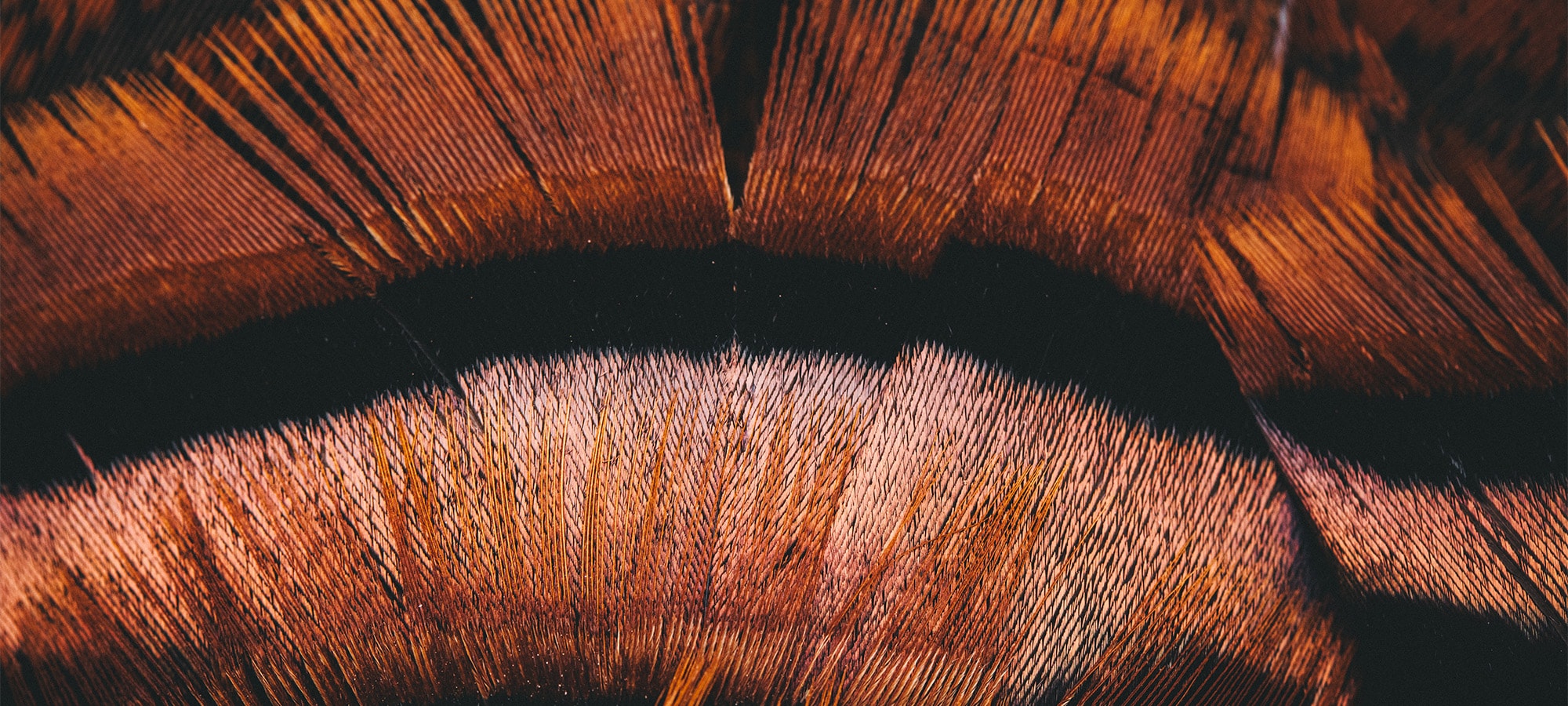Have you always been a turkey hunter? When did you start? What is it about them and their habitat that makes you dedicate yourself to working for them full time?
I have seen pictures of me at a very early age in my mom’s arms while she sat in a turkey blind. I started following along behind my dad into the turkey woods when I was just four years old and by seven, I got my first turkey. The memory of the adult gobbler I harvested on my first youth day hunt will forever be etched into my mind. The spectacle of a morning in the turkey woods had me forever hooked.
I lived in one of the best areas in the country to turkey hunt and there were ample opportunities throughout my childhood to do so. It is through these experiences of a young woodsman that I have witnessed the major declines with my own eyes. Turkeys and quail are like the canary in the coal mine; we have to make sure they are taken care of first. Growing up in Virginia, I got to see firsthand how quickly far-reaching declines seemed to become the new norm. I want to be a voice for the wild turkey and right now they need a powerful voice.
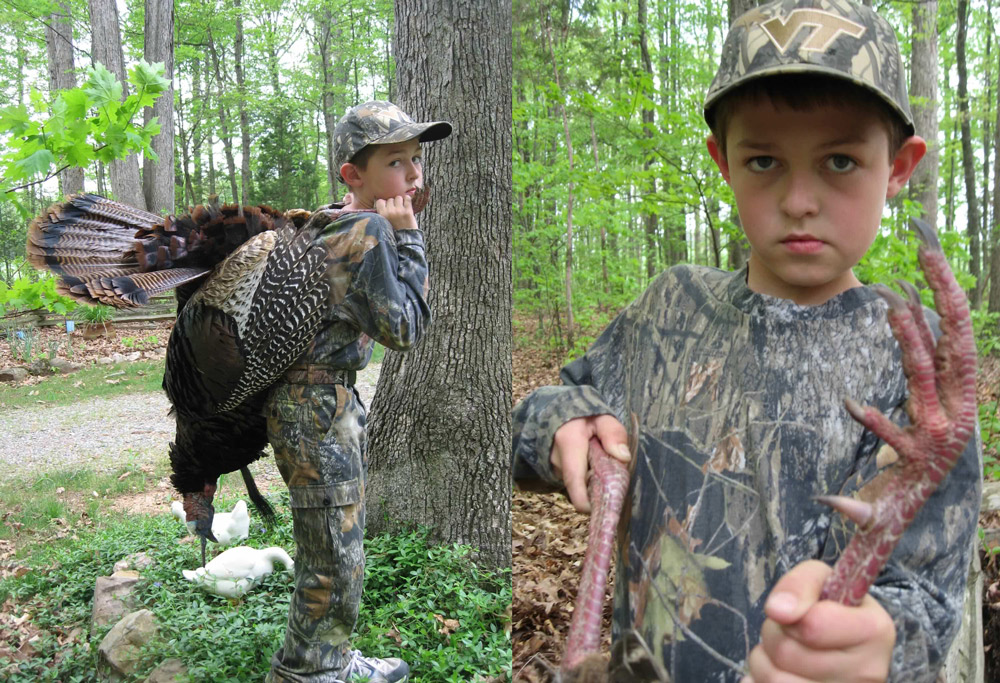
(Chase pictured with his second turkey, age 8)
What about turkey conservation that motivates you?
We are at a critical time when it comes to wild turkey hunting and conservation where we have to learn more about the species. We've already reintroduced turkeys once, and now they are in decline across the country yet again. A turkey gobble is the ultimate draw for many hunters. Sadly, many turkey hunters are hearing less across the country. Research shows the number one driving factor of hunter satisfaction during the spring is gobbles heard, so reversing declines and impacting entire ecosystems for the betterment of wild turkeys is a pretty powerful motivator.
We have to educate hunters, the hunting community, and those who simply enjoy spending time in the woods about wild turkey conservation and what that conservation entails. I also encourage those companies who have experienced success on the back of the wild turkey to look to the future of the wild turkey through the lens of conservation versus exploitation.
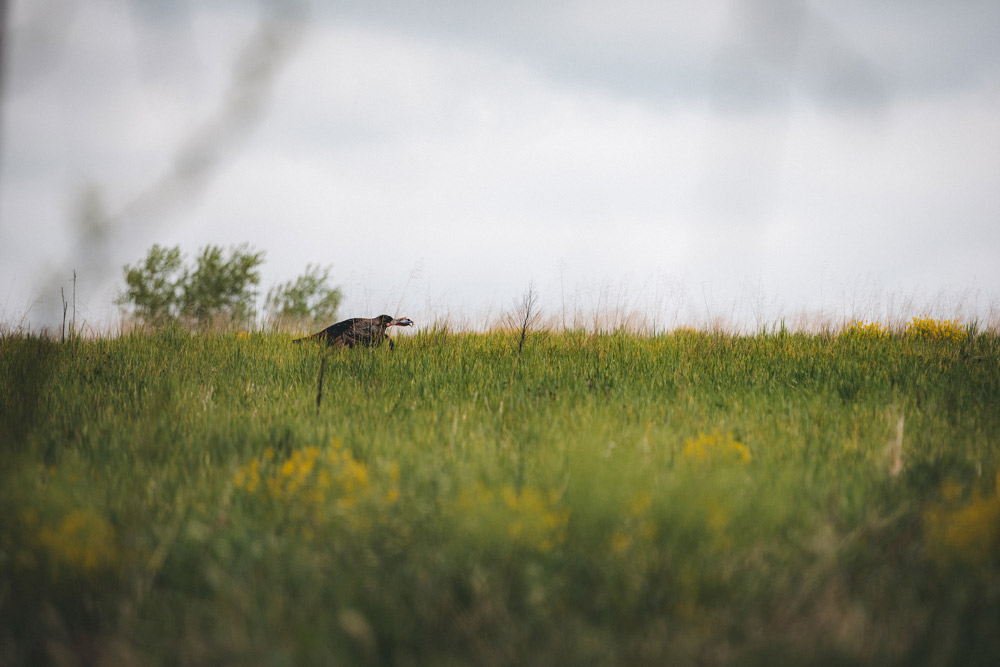
“If there was one thing I wish all hunters knew, it would be how big of an impact they can have by creating better habitats on very small parcels of land.”
Do you have a specific memory or experience in the field that made you want to dedicate your work to conservation?
I remember vividly when I missed two different turkeys on a spring hunt during my early teens. The first birds worked right into our setup as shooting light opened. After the disheartening misses, we ended up having to walk until 3:30 pm before another bird would answer our calling. At that point we were miles away from the truck. My dad has to watch the Masters golf tournament every spring—it's a tradition in our household. Unfortunately, it was before DVR and he missed most of that Saturday’s coverage. He was not happy! While this might not hit home to some, I reflect back on that spring day often, because it was when I noticed the beginning of wild turkey declines in our area. In mid-2010 we saw a drastic drop-off and it has since gotten worse.
What is it like running a start-up conservation group? How is Turkeys For Tomorrow filling a niche in the non-profit space?
It’s constant work from early morning to late nights and weekends. Turkeys For Tomorrow (TFT) is trying to make an immediate impact while also trying to find our “space” in the hunting and conservation communities. We’ve been very successful so far, but as we begin our third year, we’re hoping to make our biggest impacts yet for hunters and wild turkeys. We have a membership base in all 48 states and are actively funding research projects in four states trying to determine the root causes of wild turkey declines.
TFT founders saw a place in the non-profit space for a grassroots group led by turkey hunters with a singular goal of helping wild turkeys, and now we have the support of turkey hunters across the country who are volunteering and funding and sharing our message. I am excited to continue this journey and grow TFT into 2023 and beyond.
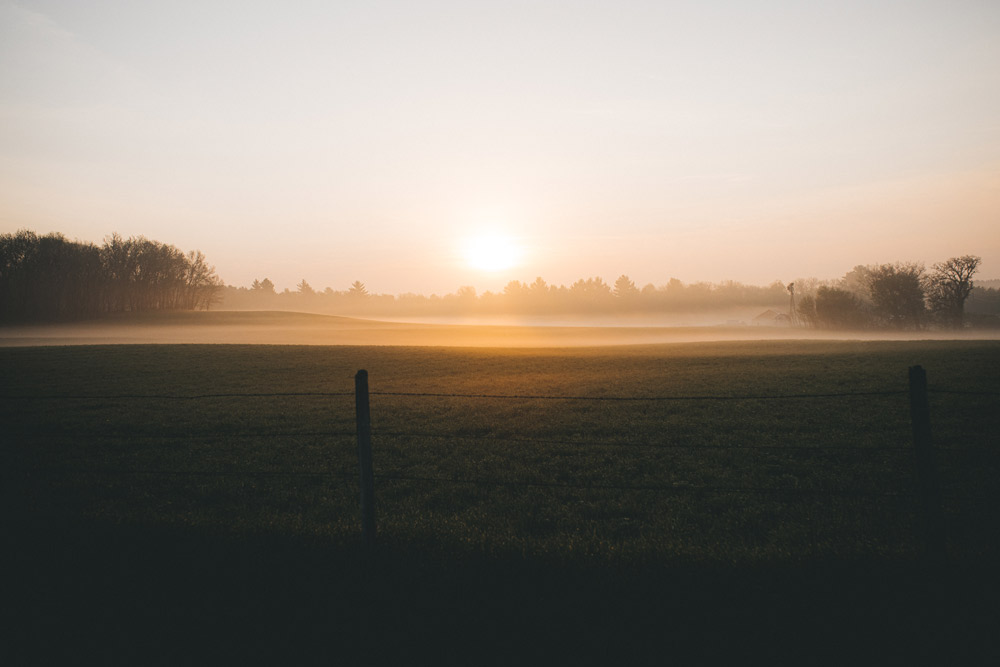
“The spectacle of a morning in the turkey woods had me forever hooked.”
What do you wish more people knew about turkey habitat and conservation?
Turkeys require different habitat types at different times of the year. If you set out to help turkeys, those efforts benefit almost all other wildlife, including non-game species. If there was one thing I wish all hunters knew, it would be how big of an impact they can have by creating better habitats on very small parcels of land.
Do you think turkey conservation is relevant for non-hunters? If so, why?
Absolutely. Whether you like turkeys or not, taking care of natural systems—land, air, and water—is vital to the survival of not only turkeys, but all living things in our ecosystems. Turkey conservation is true conservation. The wild turkey, just like the eagle and bison, is a prominent symbol of America.
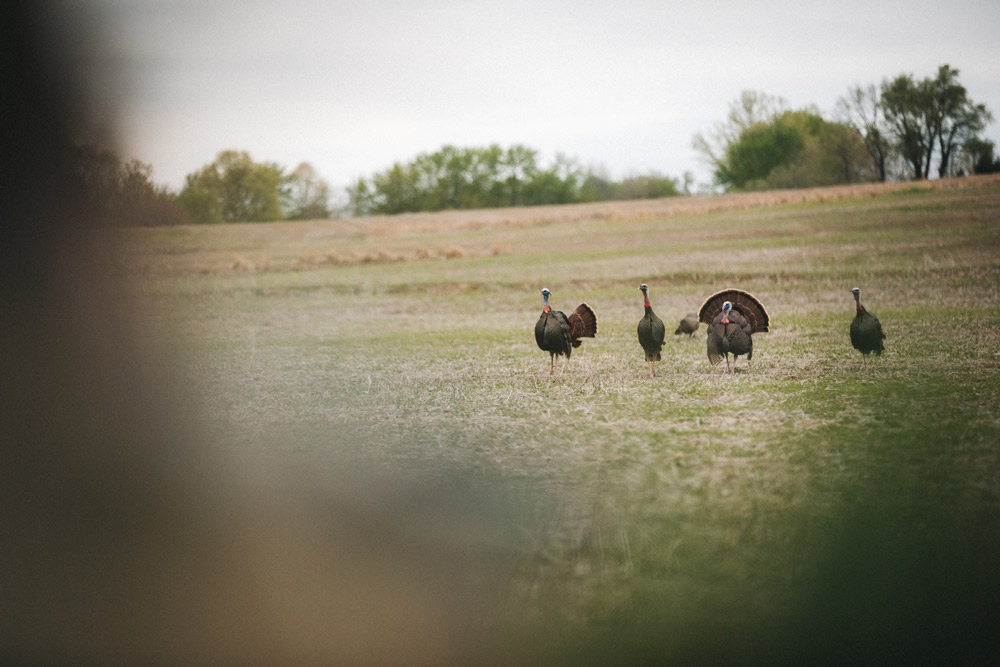
“The wild turkey, just like the eagle and bison, is a prominent symbol of America.”
If you could snap your fingers and accomplish one thing through TFT, what would it be and why?
If I could snap my fingers and accomplish one thing through TFT it would be uniting everyone in support of wild turkeys across the country. If everyone unites behind a single objective, our chances of success reversing declines are much greater and we prevent the wild turkey from going the way of the bobwhite quail. Most importantly, TFT strives to always do right from the turkey's perspective. If the wild turkey prospers, we all prosper!
What are your hopes for this work 10 years from now?
I hope ten years from now we understand what caused the population declines, have reversed that trend, and are wiser for wildlife conservation. I hope we make a positive difference for the turkey population that is noticeable to everyone who not only enjoys wild turkeys but all wildlife.
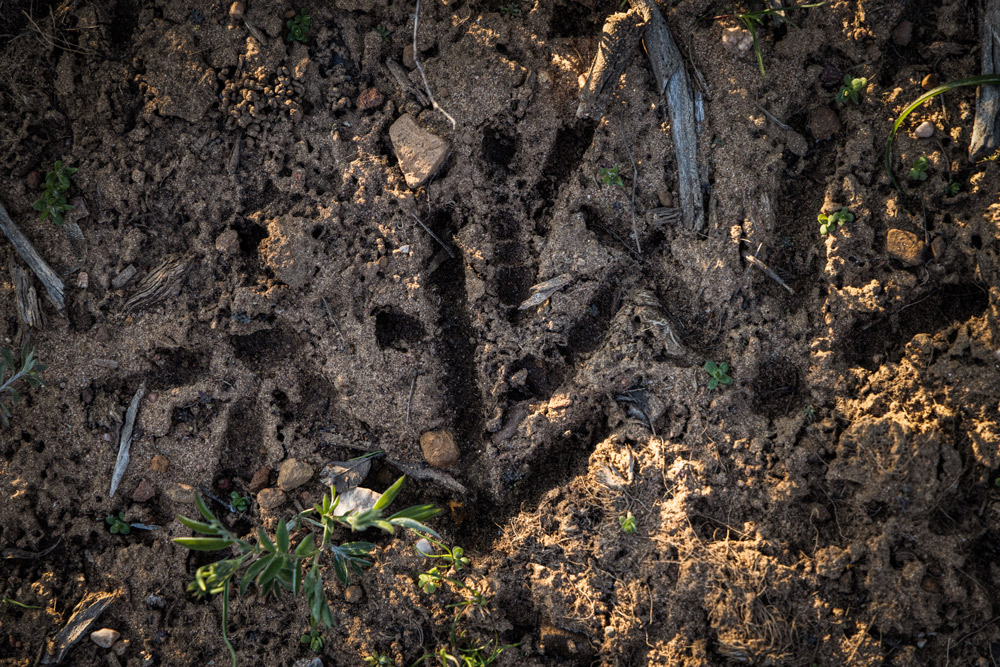
“If the wild turkey prospers, we all prosper!”
Anything else you want us to know?
I owe so much to my mom and dad for teaching me how to be a conservationist, not just a hunter.
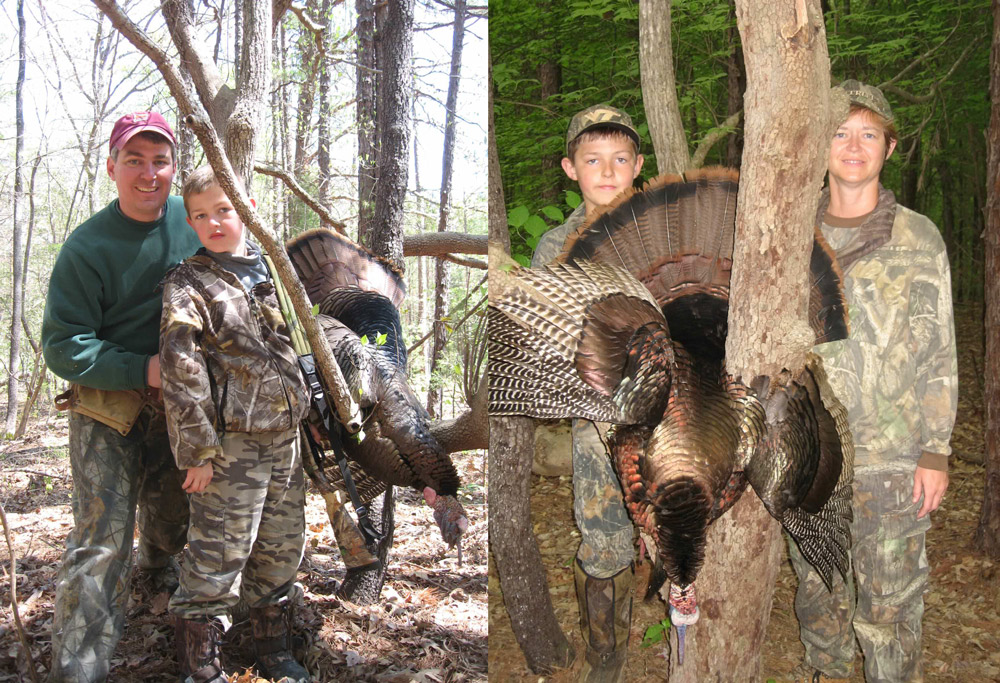
(Left, Chase and his dad, Todd Grubbs pictured with his first turkey, age 7)
(Right, Chase pictured with an Easter morning longbeard and his mom, Glenda Grubbs. Age 10)
